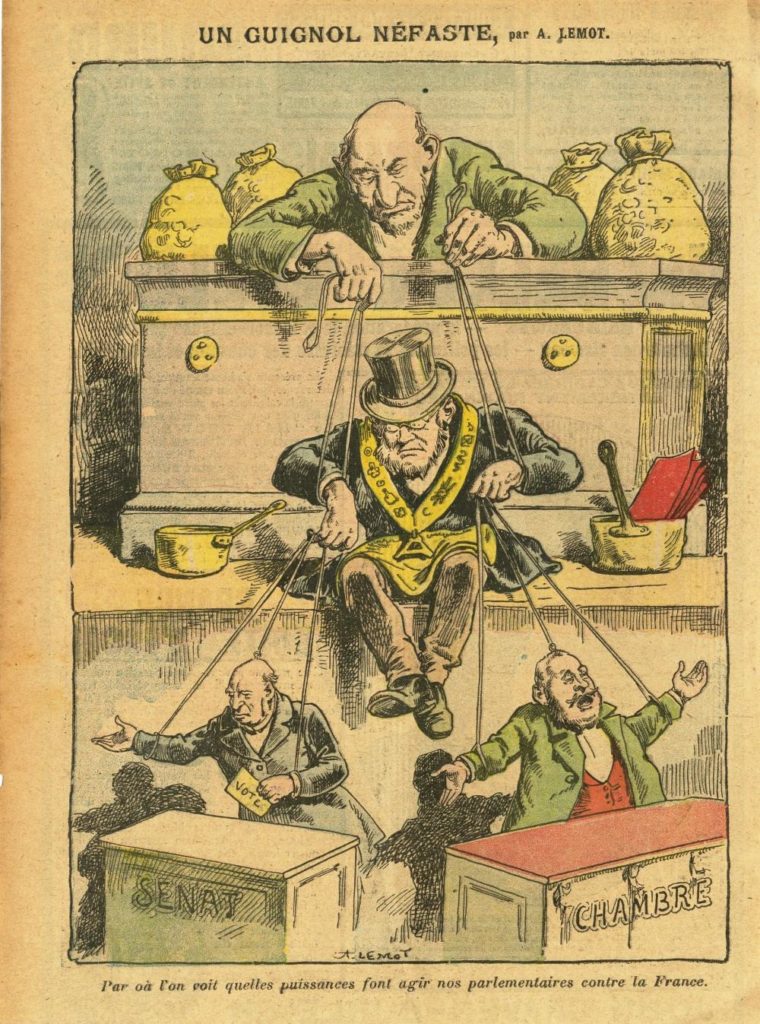Editor’s note: This is part 6 of a multipart series. You can view the entire series here.
Jews are just 0.2% of the global population. With so many problems to address in the world, does anti-Jewish prejudice really deserve so much of our attention?
It’s true that antisemitism seems to impact Jews alone. But in reality, it’s quite dangerous for everyone else. Here’s why.
Most of the time, prejudice hurts those it targets, and empowers those who spread it, much like slavery and segregation enriched America’s white majority at the expense of its black minority.
But antisemitism is a unique case—and uniquely corrosive to those societies that embrace it. That’s because it often takes the form of a conspiracy theory about how the world works, conjuring sinister string-pulling Jewish puppet masters who are said to be behind the world’s economic, political, and social problems.

And here’s the thing: By blaming real problems on imagined Jewish culprits, antisemitism prevents people from rationally solving those problems. This creates a self-sabotaging dynamic, in which people become obsessed with scapegoating Jews, and can’t overcome their society’s real challenges.
A famous example of this involves the scientists of Nazi Germany. Even as they raced against the Allied powers for scientific and military advantage, the Third Reich shunned Albert Einstein’s advances as subpar “Jüdische Physik” (Jewish physics) as opposed to their own superior “Deutsche Physik” (German physics). And we all know how that turned out.
The antisemitism that permeated their society also blinded them to reality, and fortunately led to their downfall.
This phenomenon of anti-Jewish bigotry undermining the bigots is an old one. Economist Luigi Pascali of the University of Warwick has found that a portion of the economic gap between Northern and Southern Italy can be traced to declines in areas that expelled their Jews during the 1500s, who were essential to the country’s banking and financial success.

By blaming Jews for their society’s problems, the country’s antisemites actually made them worse for generations to come.
Similarly, a 2017 National Bureau of Economic Research study found that families living in historically antisemitic German areas were less likely to invest in the stock market, due to inherited anti-Jewish attitudes. Anti-Semites associate Jews with money and economic domination. As a result, they needlessly shun the stock market and fail to use it to their advantage.
So you see, antisemitism doesn’t just impoverish Jewish people. It impoverishes anti-Jewish people.
Walter Russell Mead offers pointed examples of this phenomenon in plainspoken terms, then sums up why this means antisemitism is more corrosive to societies than many prejudices.
Eric Ward talks about how antisemitism “isn’t isn’t just making the lives of Jews harder; it’s killing the rest of us too,” explaining from his personal experience as a civil rights activist how anti-Semitism is the root of white supremacy and other prejudices, and “dehumanizes all of us.”
In other words, antisemitism is the rare hatred that really destroys the hater.
Rooting out antisemitic assumptions, then, is not simply necessary for the sake of the Jews, but for the sake of society itself.
